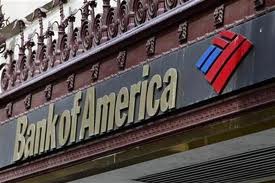 When Bank of America acquired Countrywide Financial in 2008, the company became the largest mortgage lender in the United States, but it also became one of the most troubled. By August of 2011, CEO Brian Moynihan admitted to investors that the acquisition had been a bad idea orchestrated by his predecessor Ken Lewis, and the bank's president of mortgage operations would later tell the press that shareholders deserved better than inheriting the Countrywide mess. During a recent interview with the Bloomberg TV financial network, Moynihan could not even resort to baseball analogies to describe how difficult it has been to fix the toxic mortgage legacy left behind by Countrywide, so he chose mountaineering instead. He compared the task to hiking up a mountain while carrying a 250 lbs load. He further compared the situation by saying that if Bank of America's mortgage competitors are also climbers, they are strolling uphill carrying nothing but water. Baseball Does Not Apply Moynihan explained why baseball was not an adequate analogy to depict Bank of America's ongoing struggle with Countrywide's loan portfolio. He referred to the uncertainty of extra innings, something that recalls his statements to investors in 2011 about a partial settlement with many parties, including Fannie Mae and Freddie Mac, which had ostensibly alleviated the burden for the bank. The reality in 2013 is that Countrywide is very much a thorn In Bank of America's side, and the final settlement figures will be in the billions. Bank of America started the year with a difficult announcement with regard to its ongoing battle with Fannie Mae. The bank is looking at paying more than $11 billion to settle claims filed by the government-sponsored entity on the issue of defective mortgages. Bank of America has been able to profit from home lending operations in the last three years since Moynihan assumed the duties of CEO, but the costly settlements have not appeased investors. Confidence in the Housing Market Recovery Moynihan sees the ongoing improvement of the U.S. housing market and the amelioration of the European debt crisis as positive signs that things will improve for the bank, which has absorbed losses totaling $60 billion following the purchase of Countrywide and Merrill Lynch. He is not concerned about liquidity in the markets, but he is worried that if interest rates may climb too rapidly for the financial industry to keep up. Shares of Bank of America were trading around $11.64 at the time Moynihan gave the interview to Bloomberg TV after markets were closed for the weekend. The stock price took a dip in the early morning trading session to $11.57.
When Bank of America acquired Countrywide Financial in 2008, the company became the largest mortgage lender in the United States, but it also became one of the most troubled. By August of 2011, CEO Brian Moynihan admitted to investors that the acquisition had been a bad idea orchestrated by his predecessor Ken Lewis, and the bank's president of mortgage operations would later tell the press that shareholders deserved better than inheriting the Countrywide mess. During a recent interview with the Bloomberg TV financial network, Moynihan could not even resort to baseball analogies to describe how difficult it has been to fix the toxic mortgage legacy left behind by Countrywide, so he chose mountaineering instead. He compared the task to hiking up a mountain while carrying a 250 lbs load. He further compared the situation by saying that if Bank of America's mortgage competitors are also climbers, they are strolling uphill carrying nothing but water. Baseball Does Not Apply Moynihan explained why baseball was not an adequate analogy to depict Bank of America's ongoing struggle with Countrywide's loan portfolio. He referred to the uncertainty of extra innings, something that recalls his statements to investors in 2011 about a partial settlement with many parties, including Fannie Mae and Freddie Mac, which had ostensibly alleviated the burden for the bank. The reality in 2013 is that Countrywide is very much a thorn In Bank of America's side, and the final settlement figures will be in the billions. Bank of America started the year with a difficult announcement with regard to its ongoing battle with Fannie Mae. The bank is looking at paying more than $11 billion to settle claims filed by the government-sponsored entity on the issue of defective mortgages. Bank of America has been able to profit from home lending operations in the last three years since Moynihan assumed the duties of CEO, but the costly settlements have not appeased investors. Confidence in the Housing Market Recovery Moynihan sees the ongoing improvement of the U.S. housing market and the amelioration of the European debt crisis as positive signs that things will improve for the bank, which has absorbed losses totaling $60 billion following the purchase of Countrywide and Merrill Lynch. He is not concerned about liquidity in the markets, but he is worried that if interest rates may climb too rapidly for the financial industry to keep up. Shares of Bank of America were trading around $11.64 at the time Moynihan gave the interview to Bloomberg TV after markets were closed for the weekend. The stock price took a dip in the early morning trading session to $11.57.



